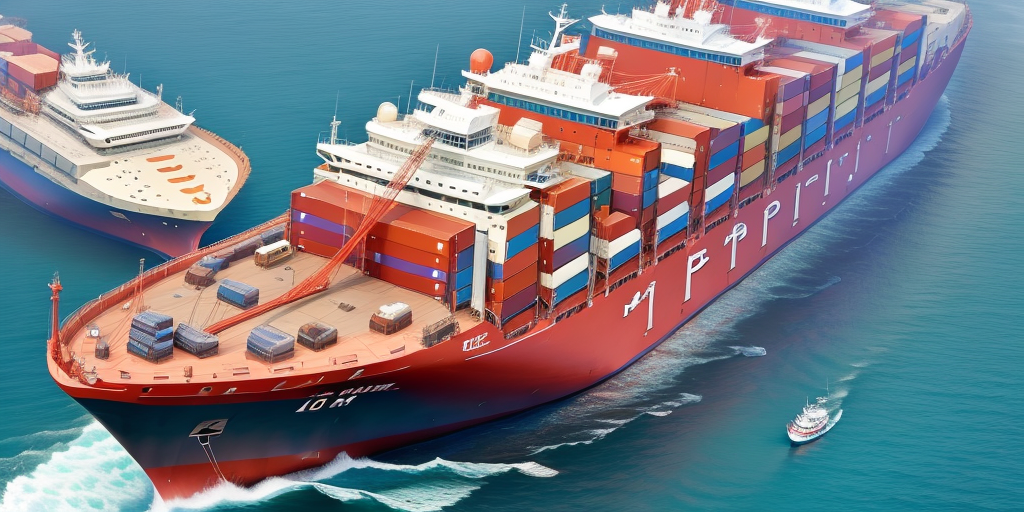
The impact of revenue-sharing contracts on parallel shipping alliances
Adrián Nerja, Mariola Sánchez
Transport Economics and Management
DOI: 10.1016/j.team.2023.06.004
What is it about?
The main focus of the paper is to analyze the implications of vertical integration and revenue-sharing on port expansion and overall welfare. It delves into the intricate relationship between ports and shipping lines, with a specific emphasis on the effects of vertical integration facilitated by revenue-sharing arrangements.
The paper explores how vertical integration can result in increased output for the integrated entity while potentially reducing output for its competitors. Additionally, it examines the welfare implications of revenue-sharing and the potential for ports to engage in competition by adjusting sharing proportions.
The study underscores the significance of comprehending the dynamics of vertical cooperation between ports and shipping lines, investigating aspects such as port congestion and economies of scale.
Ultimately, the paper seeks to contribute to the existing maritime transport literature by analyzing the incentives and potential advantages associated with vertical integration and revenue-sharing in the port sector.

Why is it important?
This paper emphasizes the significance of comprehending the implications of vertical integration and revenue-sharing in the context of port expansion and overall welfare.
This understanding holds several key benefits:
- Enhancing port performance: Vertical integration between ports and shipping lines, facilitated by revenue-sharing contracts, can lead to improved port performance and profitability. This integration aligns the goals and interests of both parties, enabling better coordination and optimization of port operations, resulting in enhanced efficiency and service quality.
- Addressing market concentration: The paper addresses the increasing bargaining power of shipping lines, which has led to potential market concentration issues. Vertical integration through revenue-sharing contracts offers a solution for ports to regain bargaining power and foster competition, thereby mitigating the negative effects of market concentration and promoting a more balanced market structure.
- Welfare implications: The study examines the welfare effects of revenue-sharing contracts and vertical integration. It analyzes how different sharing proportions and degrees of cooperation between ports and shipping lines can impact social welfare. Understanding these implications is crucial for policymakers and industry stakeholders to make informed decisions that maximize overall welfare and ensure a fair and efficient maritime transport system.
- Managing port congestion: Given the fixed capacity of ports, efficient utilization is vital to avoid congestion and delays. The paper explores how revenue-sharing contracts and vertical integration can optimize port capacity and alleviate congestion issues. By involving shipping lines in port decisions and aligning their interests, ports can better manage their capacity and improve overall performance.
- Contributing to the literature: The paper aims to contribute to the existing literature by analyzing the effects of revenue-sharing contracts and vertical integration in the port sector. By providing insights into the incentives, benefits, and potential drawbacks of these strategies, the study enriches the knowledge base and informs future research and policy discussions in the field of maritime transport.
In conclusion, understanding the implications of vertical integration and revenue-sharing in the port sector is crucial for optimizing port performance, addressing market concentration, promoting welfare, managing congestion, and advancing the academic understanding of maritime transport dynamics.
Perspectives
Vertical integration and revenue-sharing contracts offer promising solutions to address the challenges faced by ports in the context of shipping alliances and market concentration. We believe that integrating ports and shipping lines through revenue-sharing agreements can lead to a more balanced market structure, enhanced port performance, and improved overall welfare.
Vertical integration is a strategic approach that enables ports to regain bargaining power, optimize capacity utilization, and foster competition. Moreover, we emphasize the importance of considering the welfare implications and carefully managing the potential drawbacks of vertical integration, such as limited access or discriminatory treatment towards competing users of port facilities.
Overall, we highlights the potential benefits of vertical integration and revenue-sharing while recognizing the necessity for effective regulation and collaboration among stakeholders to ensure fair competition and maximize the overall competitiveness of the maritime transport sector.
Adrián Nerja
This page is a summary of: The impact of revenue-sharing contracts on parallel shipping alliances, Transport Economics and Management, December 2023, Elsevier, DOI: 10.1016/j.team.2023.06.004.
You can read the full text:
